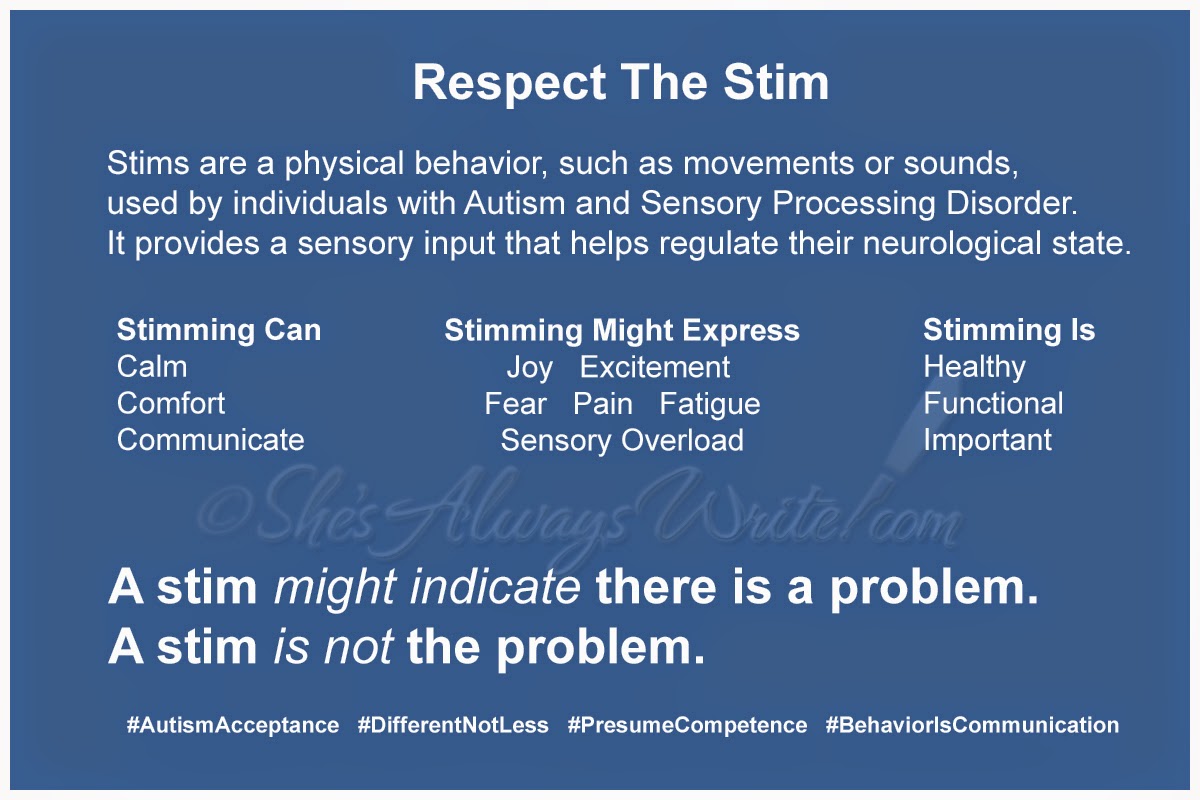Stik
Well-Known Member
Quick history ... I'm recently diagnosed and dove head first into learning everything there is to know about autism, plus some. I started working with people with disabilities before my diagnosis four years ago because I felt the need to be around these people. I didn't know why I just knew I felt better around them. It opened my eyes to autism and my real identity. It's my fourth year working for the public school district and I left my old classroom that I felt quite comfortable in to be in an autism classroom (4th & 5th grades). I just finished my sixth day and I know things need to change for these kids. It's starting to feel like my life purpose.
I don't know where to start and could use some advice. I'm having a hard time with the no stimming rule. I don't get why we're supposed to discourage it, especially if it's not harmful to anyone. I think if we say no, the kids are just going to keep coming up with new ways to stim and that could lead to violent behavior. These kids have a very hard time communicating and, to me, it seems like stimming could be a form of communication.
Thoughts? Advice on how to talk about it with the teacher in a way that's not saying HEY, YOU'RE DOING THIS WRONG! Do you agree with me or disagree and why?
I don't know where to start and could use some advice. I'm having a hard time with the no stimming rule. I don't get why we're supposed to discourage it, especially if it's not harmful to anyone. I think if we say no, the kids are just going to keep coming up with new ways to stim and that could lead to violent behavior. These kids have a very hard time communicating and, to me, it seems like stimming could be a form of communication.
Thoughts? Advice on how to talk about it with the teacher in a way that's not saying HEY, YOU'RE DOING THIS WRONG! Do you agree with me or disagree and why?


